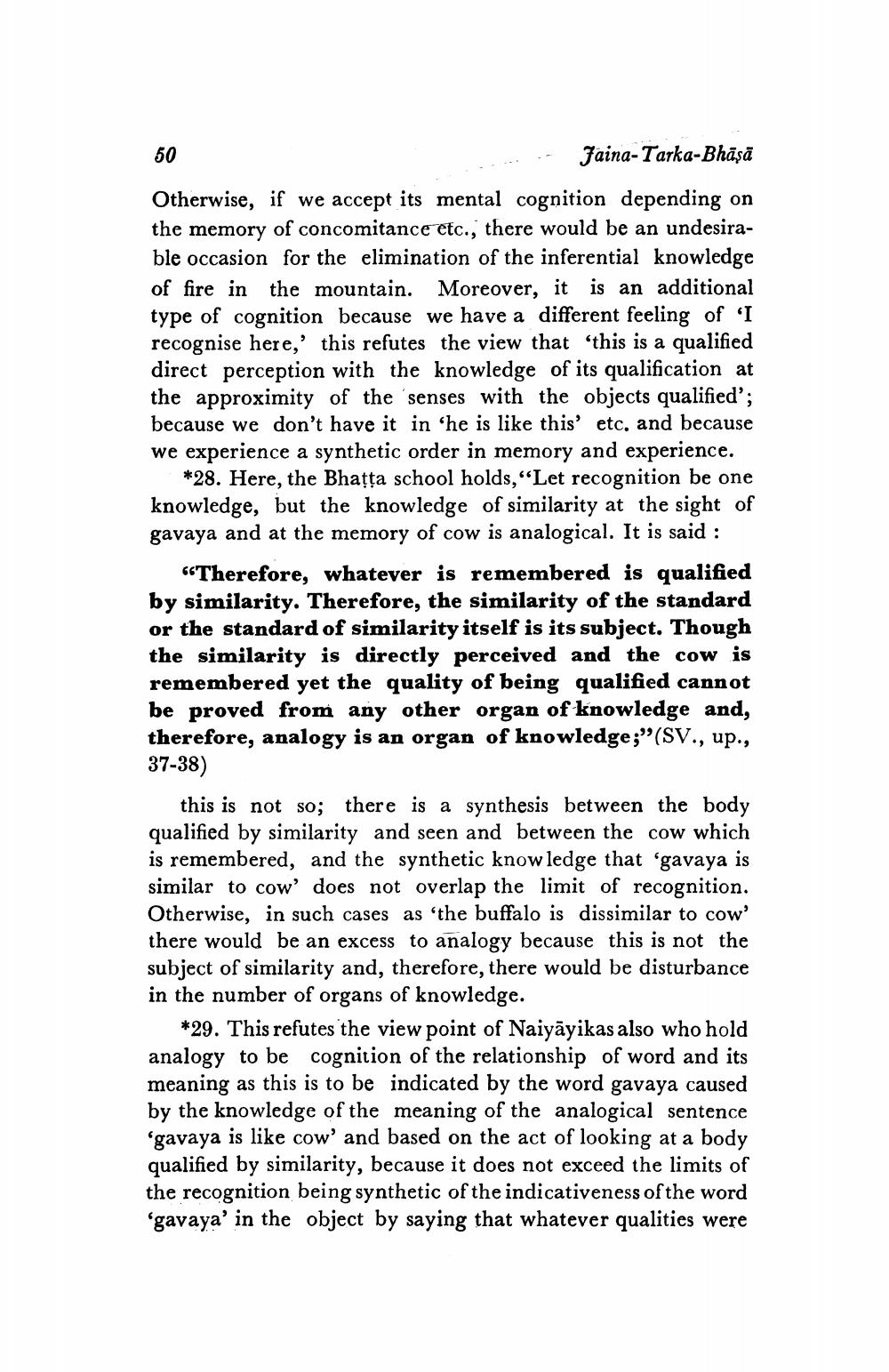________________
50
Jaina-Tarka-Bhāsā Otherwise, if we accept its mental cognition depending on the memory of concomitance etc., there would be an undesirable occasion for the elimination of the inferential knowledge of fire in the mountain. Moreover, it is an additional type of cognition because we have a different feeling of 'I recognise here,' this refutes the view that this is a qualified direct perception with the knowledge of its qualification at the approximity of the senses with the objects qualified'; because we don't have it in 'he is like this' etc, and because we experience a synthetic order in memory and experience.
*28. Here, the Bhatta school holds, “Let recognition be one knowledge, but the knowledge of similarity at the sight of gavaya and at the memory of cow is analogical. It is said :
"Therefore, whatever is remembered is qualified by similarity. Therefore, the similarity of the standard or the standard of similarity itself is its subject. Though the similarity is directly perceived and the cow is remembered yet the quality of being qualified cannot be proved from any other organ of knowledge and, therefore, analogy is an organ of knowledge;"(SV., up., 37-38)
this is not so; there is a synthesis between the body qualified by similarity and seen and between the cow which is remembered, and the synthetic know ledge that 'gavaya is similar to cow' does not overlap the limit of recognition. Otherwise, in such cases as 'the buffalo is dissimilar to cow' there would be an excess to analogy because this is not the subject of similarity and, therefore, there would be disturbance in the number of organs of knowledge.
*29. This refutes the view point of Naiyāyikas also who hold analogy to be cognition of the relationship of word and its meaning as this is to be indicated by the word gavaya caused by the knowledge of the meaning of the analogical sentence (gavaya is like cow' and based on the act of looking at a body qualified by similarity, because it does not exceed the limits of the recognition being synthetic of the indicativeness of the word 'gavaya' in the object by saying that whatever qualities were




